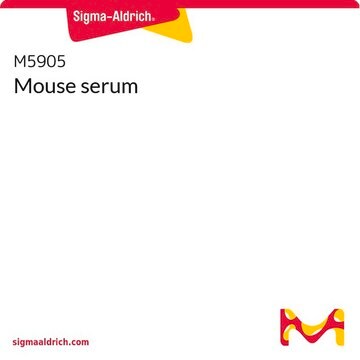MAB8661
Anti-Influenza B Antibody, nucleoprotein, clones B2, B4 Blend
ascites fluid, Chemicon®, from mouse
About This Item
Productos recomendados
biological source
mouse
Quality Level
antibody form
ascites fluid
antibody product type
primary antibodies
clone
B2, monoclonal
B4, monoclonal
species reactivity
human
manufacturer/tradename
Chemicon®
technique(s)
immunofluorescence: suitable
isotype
IgG
shipped in
wet ice
Specificity
No cross-reactivity to influenza A, parainfluenza 1, 2 or 3, adenovirus or RSV.
Immunogen
Application
Final working dilutions must be determined by end user.
Infectious Diseases
Infectious Diseases - Viral
Physical form
Storage and Stability
Analysis Note
Influenza Control Slides, Catalogue Number 5010-5
Other Notes
Legal Information
Disclaimer
¿No encuentra el producto adecuado?
Pruebe nuestro Herramienta de selección de productos.
Storage Class
12 - Non Combustible Liquids
wgk_germany
nwg
flash_point_f
Not applicable
flash_point_c
Not applicable
Certificados de análisis (COA)
Busque Certificados de análisis (COA) introduciendo el número de lote del producto. Los números de lote se encuentran en la etiqueta del producto después de las palabras «Lot» o «Batch»
¿Ya tiene este producto?
Encuentre la documentación para los productos que ha comprado recientemente en la Biblioteca de documentos.
Nuestro equipo de científicos tiene experiencia en todas las áreas de investigación: Ciencias de la vida, Ciencia de los materiales, Síntesis química, Cromatografía, Analítica y muchas otras.
Póngase en contacto con el Servicio técnico





